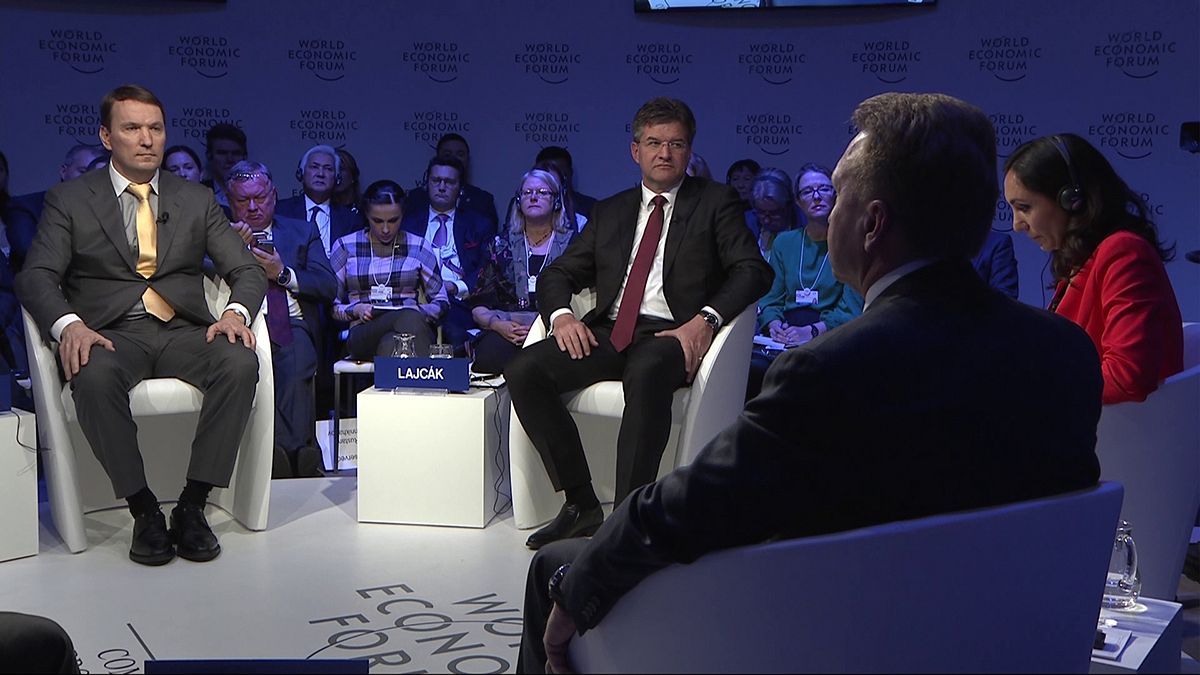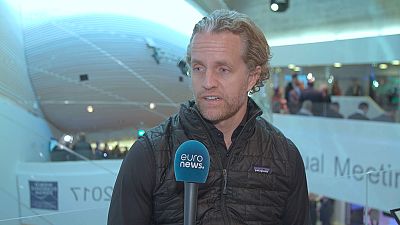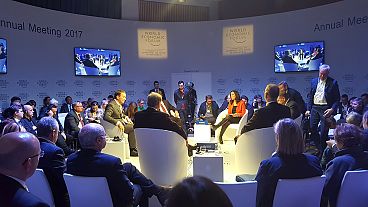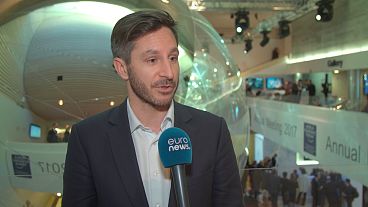The change of administration at the White House has led to speculation about the possible lifting of US sanctions against Russia over its incursion into Crimea.
The change of administration at the White House has led to speculation about the possible lifting of US sanctions against Russia over its incursion into Crimea.
During a Euronews debate at the World Economic Forum Russia’s First Deputy Prime Minister Igor Shuvalov did not seem too optimistic: External [geopolitical] conditions could remain quite harsh. Our agenda is based of a scenario that the sanctions will remain in place. Should they be lifted, that would improve the situation. But we’re factoring in a scenario that they’ll stay.”
On the issue of whether any European country might break ranks on sanctions he said Russia “has never been interested in any cracks within the European countries. We are interested in a Europe which is strong and united”.
The European view came from Miroslav Lajcak, the Slovakian Minister of Foreign and European Affairs, who said: “Ever since the sanctions were introduced almost three year ago, there have been speculations about the cracks in the unity of the European Union. But up until now the EU was always able to extend the sanctions, there was no lack of unity on that. The sanctions are directly linked to the implementation of Minsk Agreement. And there has been not much progress on that one.”
Debate participant, Ray Dalio, who heads the world’s biggest hedge fund, Bridgewater Associates, said Russia’s economy would be in a better state if it didn’t have to rely so much on foreign investment, currently blocked by sanctions: “It would be better if the sanctions were lifted, it would be better for everybody. But in addition, I think the real question is the development of their capital market so that they don’t have so much dependence of foreign capital.”



